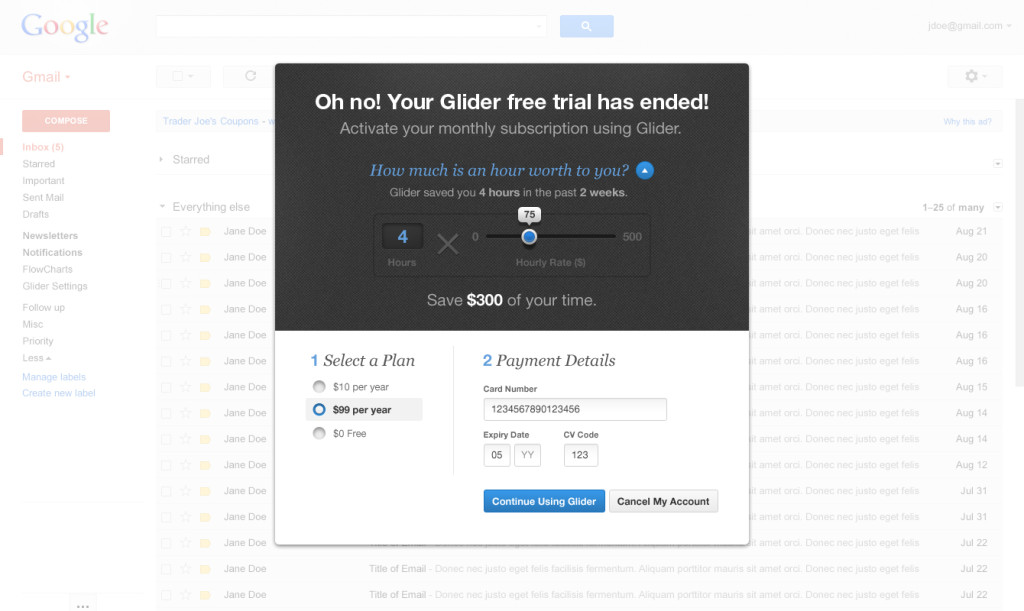Denying The Denier
I was first exposed to “denying the denier” when reading The Omnivore’s Dilemma in 2009. Author Michael Pollan explains this term with the example of McDonald’s offering salads in addition to their high-margin processed food and drink menu. When kids ask their parents to get a Happy Meal and they receive the response “No, there’s nothing healthy there.”, the kids can respond “But they have salads.”.
I’ve seen this successfully implemented in numerous industries, and it’s smart because it helps retain users, reduce churn, and ultimately increase profits.
For Glider, we implement this marketing strategy when a user has a free trial that has recently expired:
The user may say to themselves, “Ah man, I have to pay to continue this service!”. But then we outline for them all of the time we have saved them during their trial, and how much that has increased their own bottom line.
If you take a look around in your own life you will see this strategy played out all of the time. Want a coke but you’re on a diet? No problem, Coke Zero has no calories. Want an expensive car? No problem, your local car dealer will give you a deal with little money down and low interest rates. Or my favorite is the casino business… Can’t afford to spend a weekend in a nice hotel? No problem, they will give you the room and food for free as long as you gamble your money all day and night.
There are countless other examples. The main idea to see is that we all have intuitive thoughts in the back of our heads when we see certain hurdles to purchasing a good or service. When you identify the main hurdle your customer has for purchasing your product, and you help them get over it through either a marketing message or additional service, you can increase the conversions for your main offering.

